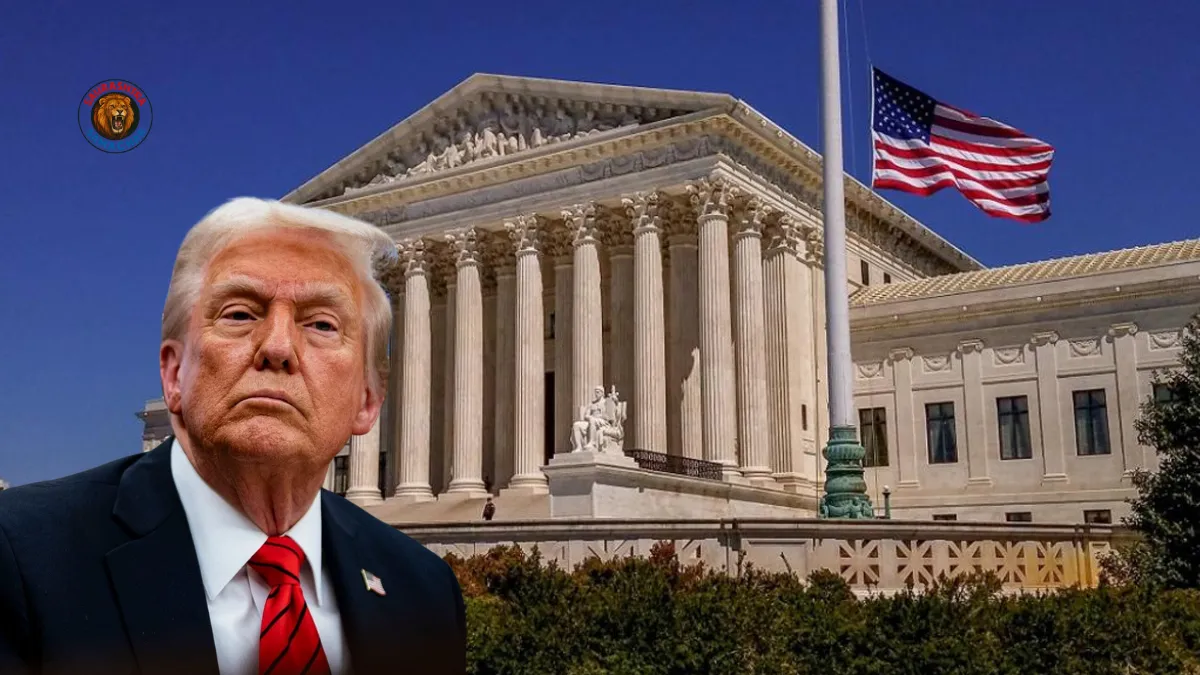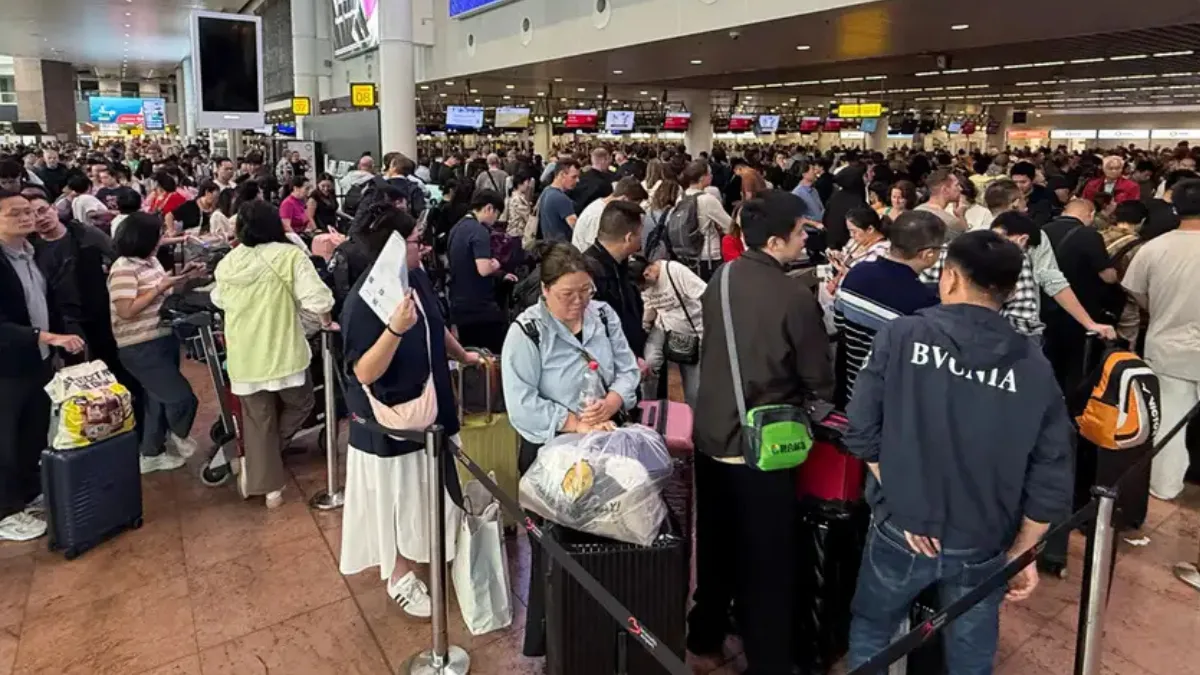The debate over Trump tariff Supreme Court rulings has taken center stage in U.S. politics, raising questions about presidential power, the rule of law, and the role of conservative justices. Recent court decisions striking down parts of Donald Trump’s radical agenda have created a wave of legal battles that seem destined to end before the nation’s highest court. With the Supreme Court already stacked 6-3 in favor of conservatives, many appointed by Trump himself, the stakes could not be higher.
The Tariff Ruling That Sparked a Legal Storm
This week, a Washington DC court ruled that Trump’s sweeping trade tariffs—measures he used to reshape global trade—were unlawful. Judges found that he had exceeded presidential powers by imposing punitive tariffs on nearly every nation without congressional approval. The 7-4 decision noted that while the president does have significant authority during a national emergency, U.S. law does not allow tariffs or taxes without legislative backing.
Trump immediately appealed, asking the Supreme Court to reverse the decision. This case has now become a flashpoint in the ongoing battle over how far executive authority can extend, and whether the conservative-dominated bench will back Trump’s vision of presidential power.
Lower Court Battles and Their Wider Implications
The tariff fight is only one piece of Trump’s broader legal challenges. Lower courts have repeatedly blocked other controversial actions, including:
| Policy/Action | Court Ruling | Key Issue |
|---|---|---|
| Alien Enemies Act to deport Venezuelans | Blocked by 5th Circuit Court | Misuse of an 18th-century law, no “predatory incursion” proven |
| Military deployment to Los Angeles | Ruled illegal by federal judge | Violation of Posse Comitatus Act; use of troops for policing |
| Harvard University funding cuts | Struck down by federal court | Retaliation against the school; violation of academic freedom |
These cases highlight a pattern: the Trump administration aggressively tests the limits of presidential authority, often stretching legal boundaries until the courts intervene.
Trump’s Use of Power and Conservative Backing
Critics argue that Trump knowingly pushes illegal policies, betting that conservative judges—and ultimately the Supreme Court—will side with him. Donald Sherman, executive director at Citizens for Responsibility and Ethics in Washington, put it bluntly:
“The president is committed to pursuing his agenda regardless of whether it’s legal or not, and is seeing what he can get away with.”
The courts, however, have increasingly pushed back. Judges have described Trump’s actions as authoritarian, unconstitutional, and a threat to the balance of power. California Governor Gavin Newsom even warned that Trump’s use of military forces on American streets was an “unmistakable step toward authoritarianism.”
The Harvard Case: Academia in the Crossfire
One of the most symbolic battles involves Harvard University. Trump’s administration had cut $2.6 billion in grants to the institution after disputes over policy compliance. A federal judge reversed this move, calling it illegal retaliation and a direct attack on academic independence. The case illustrates how Trump has used federal funding as a weapon to enforce ideological conformity—a strategy that could have profound consequences for higher education across the country.
The Alien Enemies Act Revival
Another striking example of Trump’s approach is his attempt to invoke the Alien Enemies Act, a rarely used 18th-century law designed for wartime. By applying it to deport Venezuelan migrants he accused of gang affiliation, Trump claimed a national security emergency. The Fifth Circuit Court disagreed, ruling that no invasion or hostile incursion existed to justify such sweeping powers.
Civil liberties advocates welcomed the decision, saying it reaffirmed the principle that presidents cannot unilaterally declare emergencies without oversight. Still, the administration is expected to appeal—and once again, the Trump tariff Supreme Court showdown may serve as a model for how these cases play out.
Strain on America’s Legal System
Legal experts warn that Trump’s approach is straining American institutions. Each controversial policy forces lawsuits, consuming time and resources for both advocacy groups and the judiciary. Sherman noted that the administration is “breaking laws that are clearly written and understood, creating strain on other institutions who are struggling to keep up.”
This strategy—pushing illegal policies in the hope of eventual validation—creates a cycle where the courts must repeatedly step in to uphold democratic norms.
Why the Supreme Court Matters Most
At the heart of these disputes lies the Supreme Court, where Trump hopes his conservative majority will ultimately validate his agenda. Historically, the Court has already limited the ability of lower courts to issue broad injunctions against administration policies. If it sides with Trump on tariffs and other issues, it could significantly expand presidential power, potentially reshaping the balance of government for decades.
For Trump, this conservative court offers not just legal protection, but political validation. Each victory would strengthen his claim that his agenda is both legal and legitimate, despite widespread criticism.
Looking Ahead: A Defining Moment for U.S. Democracy
The coming months will be decisive. From tariffs to immigration, military deployment, and academic freedom, each case represents more than just a legal battle—it reflects the future direction of American democracy.
If the Supreme Court upholds Trump’s actions, it could set precedents that allow future presidents to act with fewer checks and balances. If the Court strikes them down, it would reinforce the principle that even the most powerful office in the nation is bound by law.
Conclusion
The unfolding saga of Trump tariff Supreme Court battles captures the essence of America’s constitutional struggle. On one side is a president determined to expand executive authority beyond traditional limits; on the other, courts and institutions working to preserve the rule of law.
The Supreme Court’s eventual rulings will not only decide the fate of Trump’s policies but also redefine the boundaries of presidential power for generations to come.














